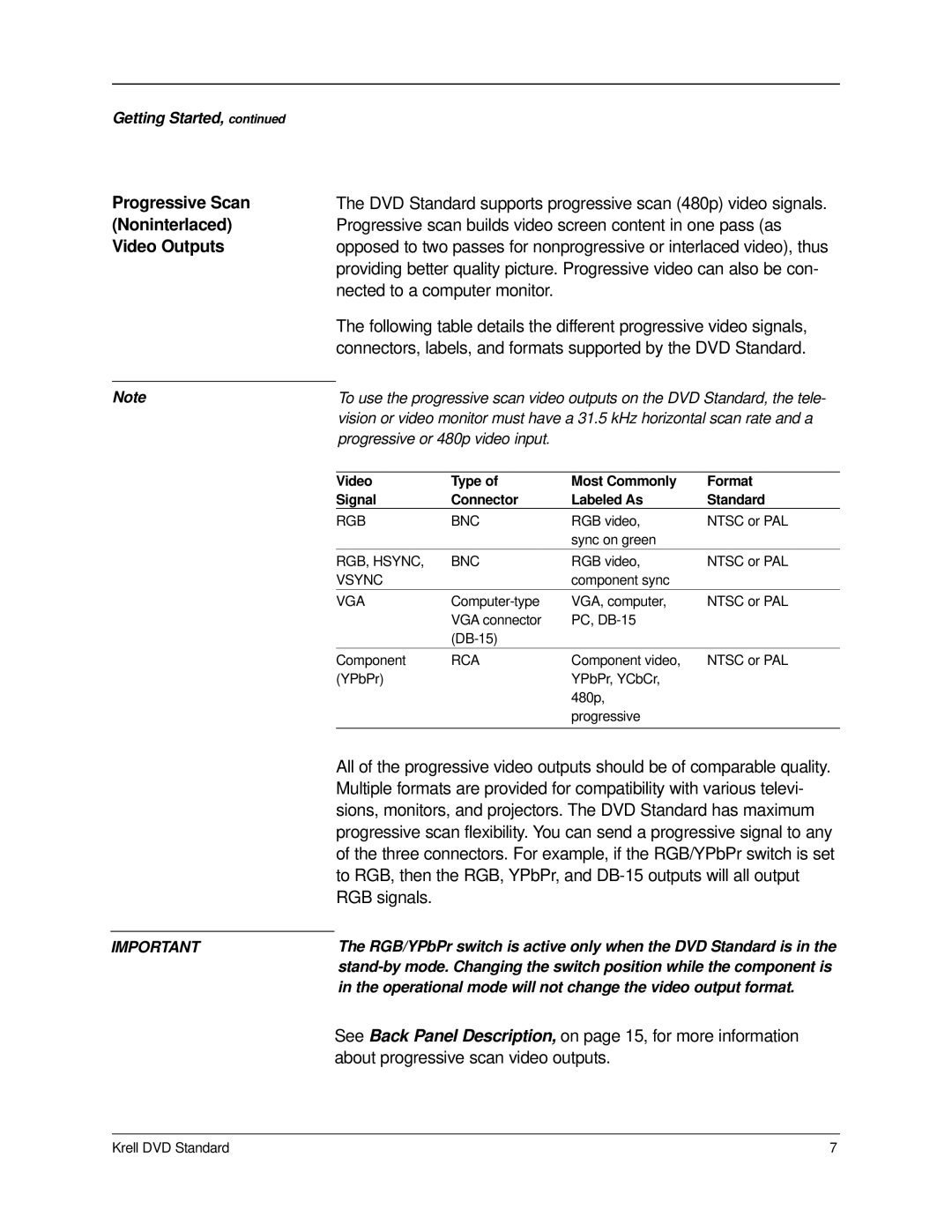
Getting Started, continued
Progressive Scan (Noninterlaced) Video Outputs
Note
IMPORTANT
The DVD Standard supports progressive scan (480p) video signals. Progressive scan builds video screen content in one pass (as opposed to two passes for nonprogressive or interlaced video), thus providing better quality picture. Progressive video can also be con- nected to a computer monitor.
The following table details the different progressive video signals, connectors, labels, and formats supported by the DVD Standard.
To use the progressive scan video outputs on the DVD Standard, the tele- vision or video monitor must have a 31.5 kHz horizontal scan rate and a progressive or 480p video input.
Video | Type of | Most Commonly | Format |
Signal | Connector | Labeled As | Standard |
RGB | BNC | RGB video, | NTSC or PAL |
|
| sync on green |
|
RGB, HSYNC, | BNC | RGB video, | NTSC or PAL |
VSYNC |
| component sync |
|
VGA | VGA, computer, | NTSC or PAL | |
| VGA connector | PC, |
|
|
|
| |
Component | RCA | Component video, | NTSC or PAL |
(YPbPr) |
| YPbPr, YCbCr, |
|
|
| 480p, |
|
|
| progressive |
|
|
|
|
|
All of the progressive video outputs should be of comparable quality. Multiple formats are provided for compatibility with various televi- sions, monitors, and projectors. The DVD Standard has maximum progressive scan flexibility. You can send a progressive signal to any of the three connectors. For example, if the RGB/YPbPr switch is set to RGB, then the RGB, YPbPr, and
The RGB/YPbPr switch is active only when the DVD Standard is in the
See Back Panel Description, on page 15, for more information about progressive scan video outputs.
Krell DVD Standard | 7 |
